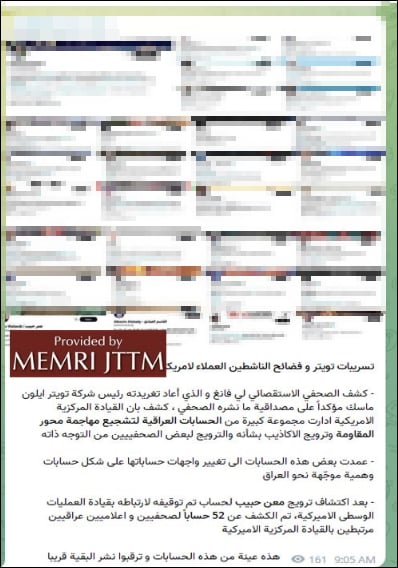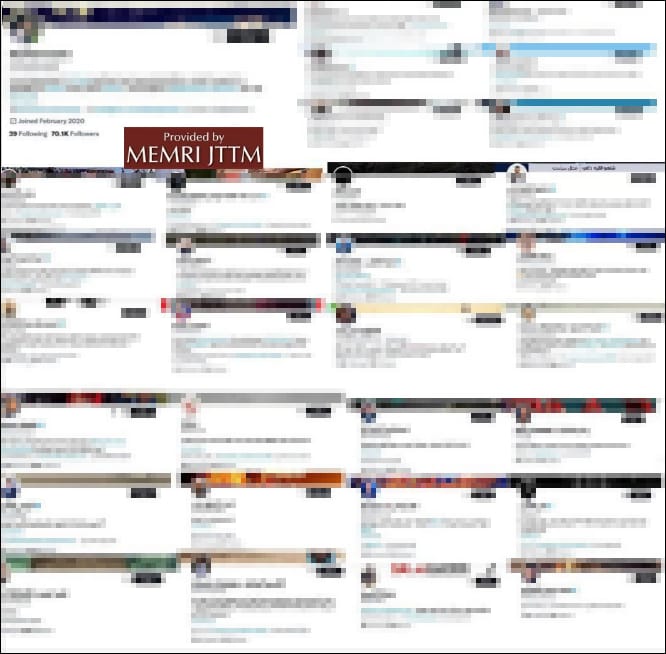The following report is now a complimentary offering from MEMRI's Jihad and Terrorism Threat Monitor (JTTM). For JTTM subscription information, click here.
On December 22, 2022, Telegram channel linked to Iran-backed militias in Iraq, reacted to the Twitter Files that had been posted on December 20 by the investigative reporter Lee Fang. The post suggested that Twitter worked with the Pentagon to amplify propaganda about the United States military's activities in the Middle East.[1] Fang also shared his findings in an article posted on the same day on The Intercept listing 52 accounts that Fang alleged were linked to the Pentagon and used to run an online influence campaign abroad.[2]
In their comments, pro-Iran Telegram channels exploited the information provided in Fang's article to discredit Iraqi reporters and activists who use social media to voice their opposition to Iran-backed militias, claiming that they are part of the U.S. propaganda war.
Twitter Files Prove Iran Not The Enemy
One Telegram channel stated that the revelations sent shockwaves across Twitter, arguing that they prove that the content critical of Iran was misleading.[3] "Scandals rocked Twitter, among the Twitter leaks were the accounts that were promoting [the notions] that Iran is cutting off water from Iraq, [that] Iran spreads drugs in Iraq, and accounts supporting Saudi Arabia's war in Yemen, all of which turned out to be affiliated with the CIA."

Iran's Critics Are American Agents
Another Telegram channel argued that Twitter files revealed that all the anti-Iran activitist who use social media were "agents of America."[4]
The channel went to add: "Investigative journalist Lee Fang, who was retweeted by Twitter CEO, Elon Musk, confirming the credibility of what the journalist published, revealed that the U.S. Central Command (CENTCOM) managed a large group of Iraqi accounts to encourage attacking the axis of resistance, promoting lies about it, and promoting some journalists of the same orientation."
The post further claimed that U.S.-based Iraqi journlist Maan Habib who works for the U.S.-funded Al-Hurra TV, had promoted in the past an account linked to CENTCOM and that is why he has now been suspended. Habib is a reporter and activist popular among young Iraqis who took the streets back in October 2019 to protest Iran's growing influence in Iraq.
The channel claimed that 52 accounts which were identified by the article in The Intercept all belong to Iraqi journalists and media figures posting screenshots of some of them and promising to highlight more of them in the near future.
MEMRI JTTM can confirm that the screenshot included profiles of Twitter accounts that were not mentioned in the Intercept article.


[1] Twitter, lhfang, December 20, 2022.
[2] Theintercept.com, accessed on December 22, 2022.
[3] Telegram, December 22, 2022.
[4] Telegram, December 22, 2022.
The full text of this post is available to subscribers.
Please login or register to request subscription information from MEMRI






